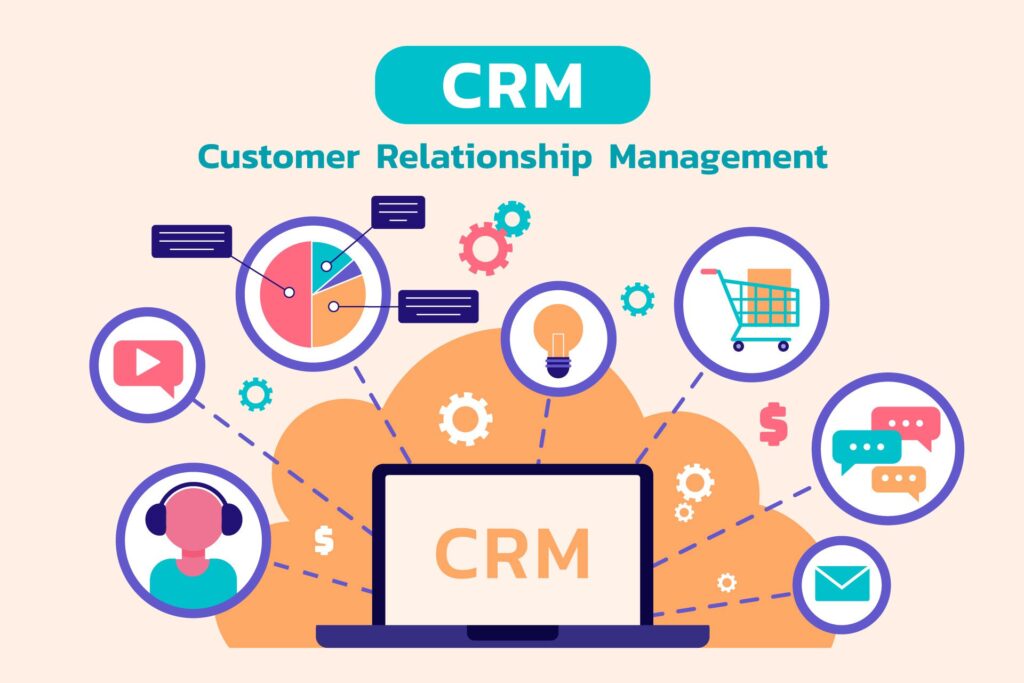
In today’s competitive business landscape, young entrepreneurs are harnessing the power of Customer Relationship Management (CRM) tools to maximize profits and drive sales. These innovative solutions allow them to manage customer interactions more effectively, streamline operations, and ultimately enhance their bottom line. This article delves into how young business leaders are utilizing CRM systems to achieve significant sales growth.
Understanding CRM and Its Importance
What is CRM?
Customer Relationship Management (CRM) refers to a technology platform that helps businesses manage interactions with current and potential customers. CRM systems facilitate the organization, automation, and synchronization of sales, marketing, customer service, and technical support.
Why CRM Matters for Sales
A well-implemented CRM system can lead to:
- Improved Customer Insights: By analyzing customer data, businesses can understand purchasing patterns and preferences.
- Streamlined Sales Processes: Automation of repetitive tasks allows sales teams to focus on closing deals.
- Enhanced Customer Relationships: Personalized communication fosters stronger relationships, increasing customer loyalty.
How Young Entrepreneurs Are Leveraging CRM for Sales Growth
1. Data-Driven Decision Making
Young entrepreneurs are using CRM tools to gather and analyze data about their customers. This data-driven approach helps them make informed decisions about product offerings, pricing strategies, and marketing campaigns.
Example: A Startup’s Success Story
A tech startup launched a CRM tool that integrated analytics capabilities. By using the data to identify their best-selling products and customer demographics, they tailored their marketing strategies, resulting in a 30% increase in sales over six months.
2. Automating Sales Processes
Automation is a key feature of most CRM systems. Young entrepreneurs are taking advantage of this by automating lead nurturing, follow-ups, and task assignments, which helps them save time and improve efficiency.
Case Study: A Fitness Coaching Business
A young entrepreneur running a fitness coaching business implemented a CRM to automate client onboarding and follow-up communications. This automation allowed her to focus on coaching while ensuring that no potential lead was left unattended, leading to a 50% increase in conversions.
3. Personalizing Customer Interactions
CRM systems enable entrepreneurs to personalize their interactions with customers. By tracking previous interactions, preferences, and purchase history, they can tailor communications and offers.
Example: An E-commerce Venture
An e-commerce startup utilized CRM tools to segment its customer base and send personalized product recommendations. This targeted approach increased the average order value by 25%, demonstrating the effectiveness of personalized marketing.
4. Enhancing Customer Retention
Retaining existing customers is often more cost-effective than acquiring new ones. Young entrepreneurs are using CRM systems to monitor customer satisfaction and address issues promptly.
Case Study: A Subscription Box Service
A young entrepreneur running a subscription box service used CRM tools to track customer feedback and engagement. By addressing concerns quickly and offering personalized discounts, they improved retention rates by 40%.
Best Practices for Using CRM to Drive Sales
1. Choose the Right CRM System
Selecting a CRM that aligns with your business goals and customer needs is crucial. Look for features that cater specifically to your industry, such as automation, analytics, and integration capabilities.
2. Train Your Team
Proper training is essential to ensure that your team can utilize the CRM system effectively. Invest time in training sessions to familiarize them with the tools and processes.
3. Monitor Key Metrics
Regularly track key performance indicators (KPIs) to measure the success of your CRM strategies. Metrics such as conversion rates, customer acquisition costs, and customer lifetime value can provide valuable insights.
4. Foster a Customer-Centric Culture
Encourage your team to prioritize customer relationships. A customer-centric culture will enhance the effectiveness of your CRM system, leading to improved sales outcomes.
Conclusion
Young entrepreneurs are revolutionizing the way businesses operate by leveraging CRM tools to drive sales and maximize profits. By embracing data-driven decision-making, automating processes, personalizing interactions, and focusing on customer retention, they are setting themselves up for success in a competitive market. As the business landscape continues to evolve, those who harness the power of CRM will undoubtedly lead the charge in innovation and profitability.
